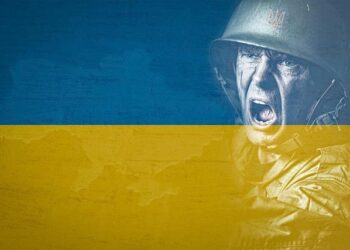Recent Updates on the Ukraine Crisis: Germany Hints at Stricter Sanctions on Russia as Peace Talks Approach
As diplomatic efforts to resolve the ongoing conflict in Ukraine gain traction, Germany has taken a decisive stance, indicating that it may impose stricter sanctions on Russia. With peace negotiations on the horizon, German officials have indicated that a “substantial tightening” of existing sanctions could be implemented if Moscow fails to demonstrate genuine intent to participate in discussions.This advancement unfolds against a backdrop of continued violence in the region, raising concerns about the humanitarian impact on Ukrainian civilians and broader security implications for Europe. As key stakeholders prepare for crucial talks, the global community is closely observing how these developments might affect both the course of the conflict and regional stability.
Germany’s Shifting Stance: Implications for Sanctions Against Russia
The recent announcements from Germany regarding its sanctions policy towards Russia signify a notable shift in Europe’s strategy concerning the ongoing war in Ukraine. As one of Europe’s leading nations, Germany is contemplating strengthening current sanctions while also exploring new measures aimed at further isolating Moscow. This decision reflects an increasing recognition that more robust actions are necessary against those backing Russian military operations.Proposed initiatives include extending asset freezes and enforcing stricter export controls on critical technologies that could bolster Russian military capabilities.
The consequences of this policy shift are profound not only for Germany and Russia but also for the overall geopolitical landscape. Heightened sanctions could exacerbate tensions between European nations and Russia, potentially provoking retaliatory actions from Moscow.Furthermore, this approach may impact energy supplies as Germany navigates its own reliance on Russian gas imports. The resulting effects could lead to fluctuations within global energy markets, placing additional economic pressure on both parties involved in this conflict. As peace negotiations draw closer, understanding how these evolving sanction dynamics will influence discussions becomes increasingly important.
Peace Strategies: The Role of Sanctions in Ukraine’s Negotiation Efforts
The escalation of diplomatic initiatives amid ongoing hostilities positions sanctions as a crucial component within Ukraine’s negotiation framework. With indications from Germany about potential “significant tightening” measures against Russia,there is growing pressure on Moscow to reevaluate its military objectives regarding Ukraine.By leveraging economic strategies through sanctions, Ukraine aims not only to weaken Russia‚Äôs capacity to sustain its military operations but also seeks to enhance its bargaining power during negotiations. These punitive measures can effectively isolate Russia internationally while demonstrating unity among Western allies committed to supporting Ukrainian sovereignty.
The effectiveness of these sanctions during peace talks hinges substantially upon their strategic implementation; key actions may include:
- Targeting Financial Institutions: Stricter regulations aimed at Russian banks can limit their access to international markets.
- Curbing Energy Exports: Imposing restrictions on oil and gas exports can drastically diminish essential revenue streams flowing into the Russian government.
- Denying Military Supplies: Blocking access to critical military technology can impair operational effectiveness.
This extensive strategy not only exerts pressure on Russia but also serves as an impetus for dialogue by encouraging both sides toward finding common ground amidst rising tensions.As global discussions surrounding peace efforts continue,the international community remains vigilant , closely monitoring how these sanction impacts will shape any forthcoming agreements.
Coordinated Global Response: Unified Strategies Against Russian Aggression
<pIn light of escalating tensions primarily stemming from aggression towards Ukraine,nations around the globe are uniting efforts aimed at establishing cohesive strategies against such violations by Russia . With indications from Germany suggesting increased sanction possibilities ,the international community underscores collaboration as vital deterrent mechanisms . Key components include :
- Tighter Economic Sanctions: Countries are exploring new methods designed specifically at economically penalizing sectors critically impacting Russias economy .
- Munitions Support For Ukrainians : Allies pledge enhanced support ensuring adequate resources available defending territorial integrity .
- Diplomatic Engagement : Ongoing dialogues seek resolutions preserving Ukraines sovereignty while isolating aggressors globally .
As conversations surrounding potential peace agreements heat up ,leaders emphasize future accords must firmly hold accountability over Russias transgressions . Such collaborative frameworks prove essential addressing immediate needs whilst setting precedents governing global relations moving forward . To illustrate anticipated effects stemming recent proposed penalties ,below table outlines expected outcomes based upon categories outlined :
| Sanction Category | Projected Impact |
|---|---|
















